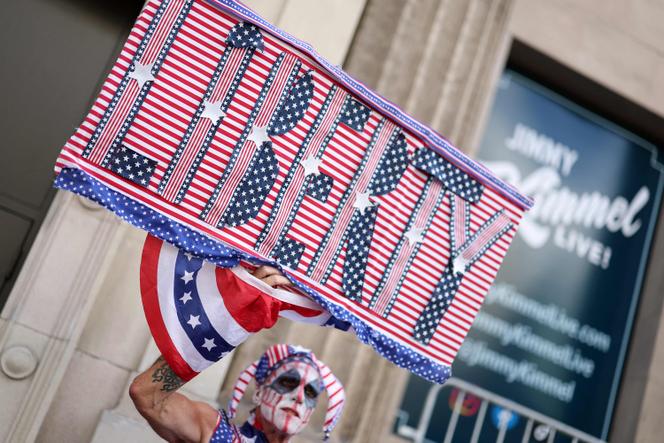

The United States should not be tearing itself apart over the presence of a comedian on a television network. The temporary removal of late-night show host Jimmy Kimmel from ABC sparked an outcry because it went far beyond a simple dispute between an employer and an employee. What was at stake was nothing less than "free speech," the freedom of expression enshrined in the First Amendment to the Constitution.
The controversy began with remarks made by Kimmel on September 15, a few days after the assassination of conservative influencer Charlie Kirk. In his daily opening monologue, the comedian, who routinely mocks US President Donald Trump, said: "The MAGA [Make America Great Again] gang is desperately trying to characterize this kid who murdered Charlie Kirk as anything other than one of them and is doing everything they can to score political points from it."
The announcement of his suspension two days later could have been an independent decision by ABC to punish comments deemed inappropriate. However, it came directly after threats of retaliation made by Brendan Carr, the chairman of the Federal Communications Commission (FCC), which oversees broadcast licensing.
When he was appointed to the position in November by Trump – a president who has long been a target of Kimmel's sarcasm – Carr promised to "dismantle the censorship cartel," which he claimed was imposed by tech giants, in order to "restore free speech rights for everyday Americans."
This accusation of censorship has been a recurring theme among conservatives whenever freedom of expression has been challenged, particularly on university campuses where attempts have been made to prevent speeches deemed offensive. With the notable exception of Texas lawmaker Ted Cruz, however, few Republican figures spoke out to protest the sidelining of the comedian.

Kimmel's return to the air on Tuesday, September 23, did not signal a sweeping defeat for the FCC chairman. Nexstar and Sinclair, two influential groups of local television stations affiliated with ABC, announced they would no longer broadcast the show, much to Carr's satisfaction. Sinclair is well known for promoting conservative positions.
A combination of economic interests and ideology is at play. Nexstar needs the FCC chairman's approval to merge with another media conglomerate, Tegna. The recent announcement by CBS that it would soon end another show hosted by Stephen Colbert, a comedian equally ruthless toward the president, came as Paramount, the network's owner, sought approval from the current administration to merge with the film studio Skydance.
Contributing to this climate are the billions of dollars Trump seeks from the Wall Street Journal and the New York Times in defamation lawsuits. He also plans to give a strategic role to tech giant Oracle – run by Larry Ellison, a close associate of the president – in the US government's bid to take over the Chinese social network TikTok. This amounts to an unprecedented accumulation of threats to freedom of speech, now that the Republican president has been back in the White House for just eight months.
Translation of an original article published in French on lemonde.fr; the publisher may only be liable for the French version.
